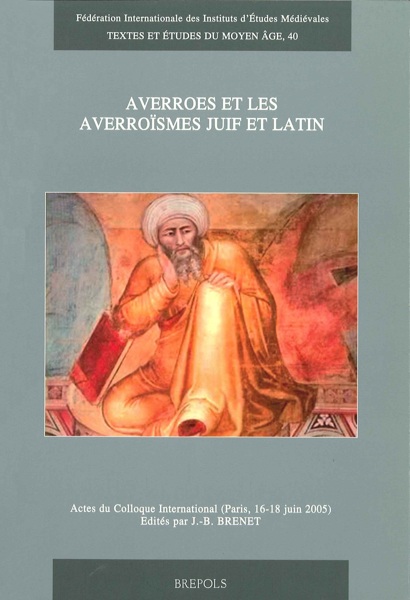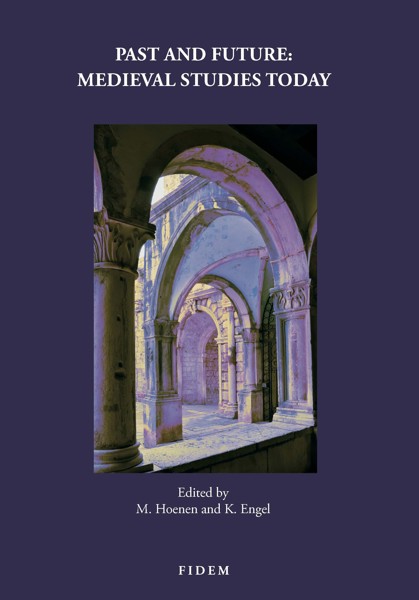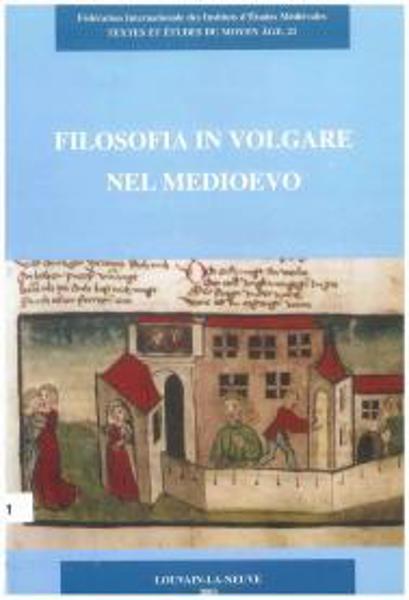
- Pages: xix + 392 p.
- Size:165 x 240 mm
- Illustrations:8 b/w, 13 col., 2 maps b/w
- Language(s):English, Spanish, French
- Publication Year:2021
- € 65,00 EXCL. VAT RETAIL PRICE
- ISBN: 978-2-503-59470-5
- Paperback
- Available
- € 65,00 EXCL. VAT RETAIL PRICE
- ISBN: 978-2-503-59471-2
- E-book
- Available
This volume evinces the vitality and multi-perspectivism characteristic of Medieval Studies today.
“(…) un volumen que, por encima de todo, pone de manifiesto que los Estudios Medievales miran ya hacia un futuro que será, sin duda, muy diferente del pasado, pero que promete ser, al menos, igual de rico y creativo. » (Carlos Prieto Espinosa, in Estudios Medievales, 52/2, p. 1015)
« (…) le présent ouvrage rend compte de la diversité et de la créativité des études médiévales de nos jours. » (Ariane Pinche, dans Le Moyen Âge, CXXVIII, 2022, p. 881)
Maarten Hoenen is Professor of Ancient and Medieval Philosophy at the University of Basel, and President of the Fédération Internationale des Instituts d’Etudes Médiévales (FIDEM). He specializes in late medieval intellectual history.
Karsten Engel is a research assistant at the Department of Philosophy at the University of Basel. He is currently working on his doctorate on the history of logic in the late 15th century.
There was a time, not so long ago, when Medieval Studies constituted a major pillar for the understanding of the history of human civilization. Today, things are different. While the medieval contribution to the project of humanity remains beyond doubt, the challenges facing those interested in history have changed definitively. Currently, different responses to the new situation are under discussion, each with its own potential and challenges: e.g., global medievalism, digital humanities, comparative history, rethinking the cultural narrative. In this volume, specialists from the fields of Digital Humanities, History, Literary Studies, Philosophy, and Theology share with the readers their views about the possible futures of Medieval Studies. They evince the vitality and multi-perspectivism characteristic of the field today, showing that Medieval Studies looks to a future that, while different from the past, promises to be at least as rich and creative.
The papers collected here were first presented and discussed at the 6th European Congress of Medieval Studies of the Fédération Internationale des Instituts d’Etudes Médiévales (FIDEM), which was held at the University of Basel, Switzerland, 2–5 September 2018.
Maarten J.F.M. HOENEN - Karsten ENGEL, Preface
Introductory Perspectives
Matteo NANNI (Justus-Liebig-University Gießen), Medieval Past, Medieval Future
Hilde DE WEERDT (Leiden University), On the Future of Medieval Studies. A (Chinese) Historian’s Perspective
Digital Humanities
Gabriel MÜLLER (University of Basel) – Ueli ZAHND (University of Geneva), Open Scholasticism. Editing Networks of Thought in the Digital Age
Xavier-Laurent SALVADOR (University Sorbonne Paris), De la page numérisée aux sens révélés. Vers une prise en charge automatique du corpus Bible Historiale
Maria Amélia ÁLVARO DE CAMPOS (University of Coimbra), Humanités Numériques et l’étude de la ville médiévale. Le cas de Coimbra
Paul TOMBEUR (Catholic University of Louvain-la-Neuve), L’angoissante question de la fiabilité de nos instruments de travail et particulièrement de beaucoup de bases de données
History
Vytautas VOLUNGEVIČIUS (Vilnius University), European barbaricum? Non-simultaneity of the Middle Ages: Germanic, Slavic and Baltic Societies
Antonio ESPIGARES PINILLA (Complutense University Madrid), San Agustín en el Vademecum del Conde de Haro
Montserrat JIMÉNEZ SAN CRISTÓBAL (Complutense University Madrid), La Carta de Léntulo al senado de Roma en el Vademecum del conde de Haro
Beatriz FERNÁNDEZ DE LA CUESTA (Complutense University Madrid), Pasajes revisitados del primer Conde de Haro en el Vademecum del ms. BNE 9522
Luca POLIDORO (University of Florence), Medieval Studies and Public History. A Challenge for the Present
Literature
Seraina PLOTKE (University of Bamberg), Chances and Opportunities – Medieval Texts and Modern Cultural Paradigms: A Postcolonial Queer Reading of the Medieval Crusade Narrative Herzog Ernst
Monica RUSET OANCA (University of Bucharest), Interpretation of Medieval Texts between Literature and Theology in La Queste del Saint Graal
Irene VILLARROEL FERNÁNDEZ (National Distance Education University of Madrid), La colección de Miracula Beatae Mariae Virginis del ms. 9289 de la Biblioteca Nacional de España
Philosophy and Theology
Isabela GRIGORAȘ (University of Fribourg/ University of Bucharest), Editing Alcuin’s Disputatio de uera philosophia and Ars grammatica. New Findings, Methodology, and Problems
Florin CRÎȘMĂREANU (University of Iaşi), Analogie et anagogie dans les écrits de Maxime le Confesseur. Essai sur une «herméneutique eucharistique»
Nadia BRAY, Anaxagoras in the Late Middle Ages (University of Salento). A Doxographical Study of Thomas of York’s Sapientiale
Constantin TELEANU (University Sorbonne Paris), Le progrès des traductions françaises de l’œuvre de Raymond Lulle du Moyen Âge aux temps modernes
Nicolás MARTÍNEZ BEJARANO (National University of Colombia, Bogotá), With Feet on the Ground. Some Remarks about Vulgarization of Christian Thought on Nueva Granada (1758-1767)




